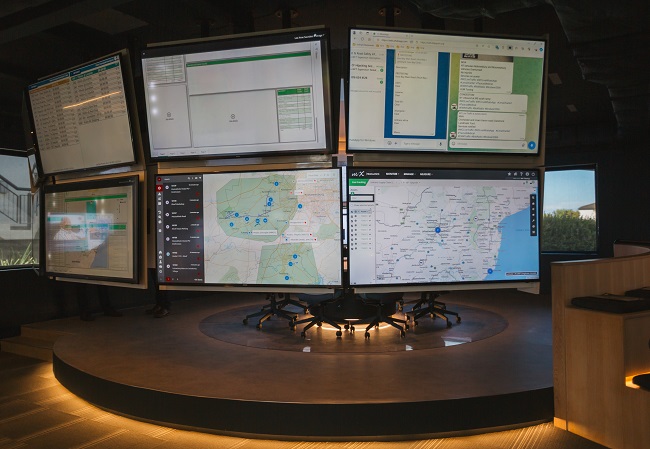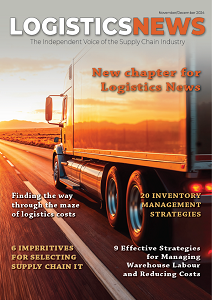The supply chain landscape is transforming rapidly, driven by technological advancements, shifting market demands and the growing need for more resilient and sustainable competitive solutions. Unitrans, an end-to-end supply chain and operations services business, continues redefining regional logistics by investing and leveraging cutting-edge technologies and staying ahead of emerging trends.
The year ahead: key trends shaping logistics in 2025
According to industry analysts, key trends for 2025 include the growing adoption of artificial intelligence (AI) and machine learning to predict demand fluctuations, optimise routing and enhance inventory management. Meanwhile, the Internet of Things (IoT) will continue to improve supply chain operations by providing unprecedented visibility of goods and vehicles.
Additionally, Robotic Process Automation (RPA) is expected to streamline supply chain operations by automating repetitive tasks, increasing efficiency and reducing costs across the value chain.
Analysts also foresee continued growth in last-mile delivery solutions, despite prevailing constraints in the logistics sector. With high mobile penetration rates across Sub-Saharan Africa, mobile money integration will remain a key enabler of seamless transactions within supply chains, though its corporate adoption may vary based on financial feasibility.
Experts highlight that infrastructure development, particularly in cross-border transportation, is expected to remain a priority, driven by increased public-private partnerships to bridge logistical gaps. Additionally, a rise in localised manufacturing and distribution hubs is anticipated, reducing reliance on long-distance supply chains and supporting regional economic growth.
As climate change concerns grow, experts predict that demand for sustainable logistics solutions is set to rise. Furthermore, simplified, localised digital models will become more prevalent, allowing businesses to test scenarios and optimise operations without disrupting real-world processes.
Unitrans: adopting innovation and digital transformation
"The future of logistics in Sub-Saharan Africa will be defined by innovation, agility and a customer-centric approach," says Edwin Hewitt, Unitrans CEO. "At Unitrans, we are committed to driving innovation, with technology and industry specific expertise forming the backbone of our operations, enabling us to deliver value to our clients."
In response to industry shifts, Unitrans has made strategic investments in digital transformation. The company has designed its Enterprise Architecture technology stack to adapt and evolve with the unique challenges of the African and customer landscape.
"The growth of business lies in the seamless integration of Information and Communication Technology (ICT) with operational excellence," says Hewitt. "By embracing innovation and leveraging the combined power of these disciplines, Unitrans delivers the necessary solutions and remains ahead of the curve."
This commitment to innovation can be seen in the agriculture sector, where Unitrans uses drones, autonomous machinery and Variable Rate Technology (VRT), to enhance efficiency and sustainability across the agricultural logistics value chain.
Drones provide real-time data on crop health and field conditions, allowing farmers to make informed decisions on irrigation and pest management, ultimately enhancing crop yields. Self-driving tractors and harvesters optimise field operations with precise GPS navigation, reducing labour costs and soil compaction. Meanwhile VRT ensures the targeted application of fertilisers and herbicides, minimising waste and maximising resource efficiency.
“By integrating these advanced technologies, Unitrans not only boosts productivity, but also significantly reduces costs in the sugarcane growing process,” says Hewitt.
A customer-centric approach
Customers remain at the core of Unitrans' innovation efforts. "We continuously engage and collaborate with our customers to understand their evolving requirements and develop tailored solutions that address their specific challenges," says Hewitt.
To support this, Unitrans has implemented RPA to streamline internal operations. By reducing manual workloads and improving efficiency, teams have gained valuable time and capacity to focus on customer-centric innovation. This allows Unitrans to respond more quickly to customer needs and co-develop solutions that drive measurable value.
The company has also adopted an agile implementation strategy to test, learn and iterate on new solutions rapidly. This approach ensures adaptability to changing needs and technologies, delivering value quicker and more efficiently.
"Our commitment is to remain a trusted partner for our customers, shaping the future of logistics through tailored solutions that address the unique challenges and opportunities of Sub-Saharan Africa," concludes Hewitt.

.jpg)


